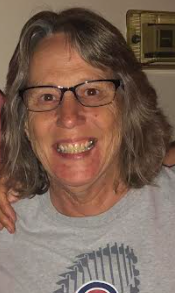CSA changes lives, says client advocate

Community Support Advocates is celebrating 25 years of supporting individuals and families impacted by mental health or disabilities in Central Iowa. The nonprofit served 100 people during its first year in 1997 — and expects to serve more than 1,900 people this year.
A critical “first stop” organization that connects individuals and families to resources — such as employment, education, and community living — CSA’s impact has resonated throughout Polk, Jasper, Story, Dallas, and Warren counties.
To celebrate a quarter-century of service, CSA asked individuals to share their stories. Read more stories at teamcsa.org or follow #CSA25DSM on Facebook or Instagram.
Deb has worked for CSA since 2015 as a client advocate within CSA’s Integrated Services Program. Deb works closely within a team of 3 staff members to support 35 adults living with mental illness, intellectual disabilities, or other development disabilities within their community.
How do you describe what you do?
My job is to make sure each and every one of my members is treated with dignity and respect.
I take them to doctors and other appointments. I am their voice if they are afraid to have a voice for themselves. I take them grocery shopping and educate them on ways make healthy meals on a budget.
I help them with paperwork they may not understand. I help them live their lives to the fullest.

Why do you do what you do?
I do this because I want people to be successful in their lives and to know they have value and have a purpose in this world.
To someone who doesn’t know what CSA is, how would you describe it?
CSA is a place that understands the world of mental health and disabilities. We run on dignity and pride in what we do. There is trust.
We have members who have been with us forever. That shows how well members trust CSA to help them through different chapters of their lives.
There is also trust among staff and within our teams. We work as a team, so that there is always someone there willing to help when you need it.
Describe a moment when you saw the difference CSA makes. What happened?
After supporting someone for almost five years, a member was able to reconnect with his parents after 20 years. Without the support of CSA, they would not have been ready to make that step.

What keeps you motivated in your work/volunteerism with CSA?
If I can make a difference in one person’s life, then I have done my job. If I see someone I have supported in the past and they remember me, that also means I have done my job.
Knowing that I make a difference is what motivates me.
What does CSA mean to the people they support? What does it mean to you?
Working at CSA is also personal. I have someone in my life that struggles with mental health and CSA is very supportive of my personal life. I have learned so much about mental health and the needs of my loved one. For that I am grateful.
Why is CSA’s work important? How have you seen CSA transform the lives of the people it works with?
I have had someone tell me that without CSA they would be homeless or dead. CSA changes lives.
What would happen if CSA did not do all that it does?
If you had to describe CSA in one word, what would it be and why?
Dignity.

